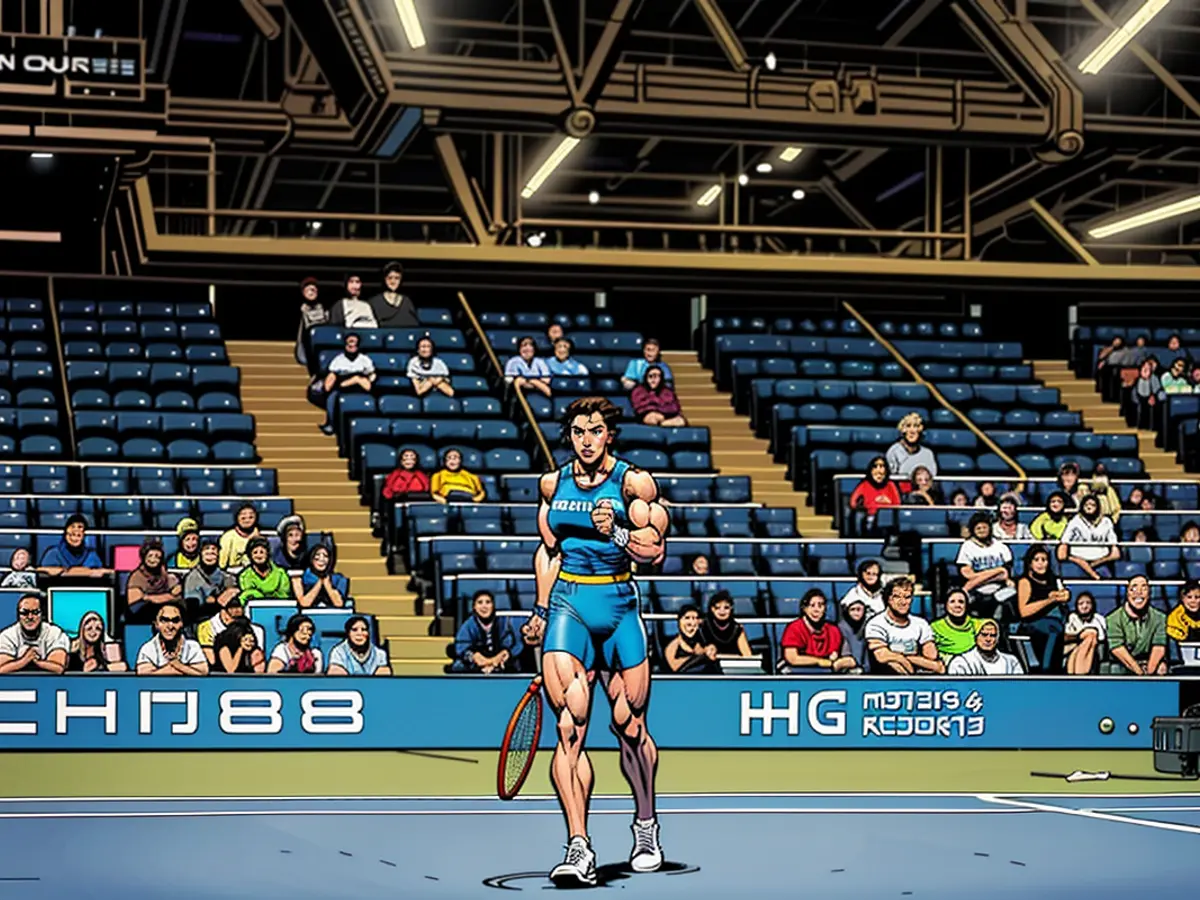Disorder and turmoil at the US Open upset tennis professionals
Tennis stars put in some serious hours at the US Open, often working past midnight. Few spectators can keep up with their pace, as the athletes' health takes a toll. The strain is significant, especially given the unpredictability of the sport. Alexander Zverev holds a controversial title.
Italian player Jannik Sinner reveled in the exciting vibe of New York. At midnight, he was cheered on by fans under the spotlights in the Arthur Ashe Stadium for reaching the quarterfinals at the US Open. "This is awesome," he exclaimed. The nighttime energy in the world's largest tennis arena is something special. Yet, it can also be quite different. When the Chinese Olympian Zheng Qinwen recently concluded the latest women's game at the US Open at 2:15 AM, only a handful of fans remained in the stands.
The tennis community has been discussing the illogical and harmful effects of seemingly unending night shifts for quite some time. The New York organizers had hoped to tackle this issue with a new rule. However, Alexander Zverev also concluded his third-round match after 2 AM, making it the second-latest end in US Open history. Former players and the players' union are concerned.
"Tennis scheduling is an absolute mess," grumbled the recently retired British player Andy Murray. "It's embarrassing to see matches going on until 2, 3, or 4 AM." He concluded his critique with a call to action for the professional organizations and Grand Slam organizers: "Sort it out."
Unapplied New Rule
This year, the US Open organizers introduced a new time policy. If a match hasn't started by 11:15 PM local time due to a previous game, it can now be moved to another court. "I think that's a good start," said US star Coco Gauff, who had previously complained about late matches: "I believe it's definitely not healthy, and it's not fair for those who have to play so late because it messes up their schedule."
However, the new rule hasn't been implemented in New York yet - Aryna Sabalenka's third-round match only began after midnight at 12:07 AM, upon her request to play in the Arthur Ashe Stadium instead of a smaller arena. "Decisions must be made earlier about when courts are changed. There needs to be more predictability about when the pros play," said Romain Rosenberg of the players' union PTPA.
According to PTPA data, the number of night matches at Grand Slams has doubled since 2018. The chance of a player getting injured during a late match is 25% higher. "The players' health should be given more importance," demands Rosenberg. "It's no surprise that players withdraw from tournaments, get exhausted, and get injured. The physical and mental fatigue is real."
Zverev in the latest match ever
When the pros in New York play until 2 AM, they usually don't get to bed until 5 AM after treatments, media appearances, and the drive to Manhattan. But it can get even later. At this year's French Open, a five-set match between Novak Djokovic went on until 3:07 AM. The record for the latest match in tennis history is held by Lleyton Hewitt and Marcos Baghdatis, who played until 4:34 AM in the Australian Open final of 2008. Alexander Zverev participated in the latest match ever, lasting until 4:55 AM, in Acapulco, Mexico.
"I don't need any more records," joked the Hamburg native after his night shift at the US Open. "Perhaps the night sessions could start earlier. But you have no control over that. The matches beforehand were long. There's not much the tournament can do about it, and it's not fair to blame anyone."
The organizers argue that it's already difficult for New York viewers to reach the venue in eastern Queens by 7 PM due to work. The night session begins with two matches initiated on two courts. The US Open takes pride in ensuring gender equality in scheduling, unlike the French Open. "It's part of the appeal," said Lew Sherr, CEO of the organizing U.S. Tennis Association. "It's something our fans love," he added, referring to New York's nickname. "It's the city that never sleeps." Not even during tennis.
The ongoing discussions in the tennis community highlight the concerns about the impact of late-night matches on players' health during Grand Slam tournaments, such as the US Open. Fans and former players, including Andy Murray, have criticized the scheduling of matches that often go on until 2, 3, or 4 AM.
Despite introducing a new time policy this year to address this issue, the US Open organizers have yet to implement it fully. For instance, Aryna Sabalenka's third-round match started after midnight at 12:07 AM, which raises concerns about the predictability of play times for the players.








